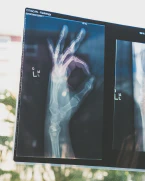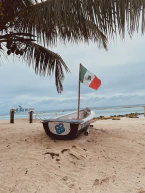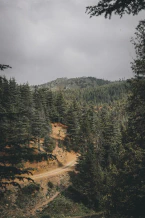Education for the Displaced: Hope Amidst Chaos

Choosing to Live: A Refugee’s Story of Toughness
Many of us take for granted the circumstances of our birth and the opportunities that come with it. But for refugees like Mary, life has been a constant struggle filled with conflict, displacement, and loss. Despite these challenges, Mary’s story is one of toughness, perseverance, and hope.
Born in war-torn South Sudan, Mary did not choose the name given to her at birth, Nyiriak, which means “war.” However, she chose to reject the legacy of conflict that came with it and instead be called Mary. As a teacher, Mary has stood in front of 120 students, many of whom come from war-torn countries and have fled their homes in search of safety. Despite their differences, Mary’s students find friendship and support in her classroom, where hatred is not allowed.
Mary’s personal story is similar to that of many refugees. Her family fled their home in search of a safe place when she was just four years old. They walked for many days before finally making it across the Kenyan border to the Kakuma refugee camp. Despite the challenges of life in the camp, Mary was eventually able to attend boarding school and continue her education. However, tragedy struck when her father and stepmother both passed away, leaving Mary and her sisters alone.
Through it all, Mary refused to give up. She became the head girl of her high school and was eventually accepted into a scholarship program in Rwanda that prepares scholars for universities abroad. Mary’s story is a testament to the power of toughness and the importance of education in helping refugees overcome the trauma of conflict and displacement.
As we reflect on Mary’s story, let us remember the importance of supporting refugee education and investing in the future of young refugees. With education, we can help create a generation of hope that will plant the seeds for a brighter future.
From War-torn South Sudan to the Classroom: Mary’s Journey
Mary, born in war-ridden South Sudan, had no control over where she was born and the circumstances she was born into. Her community was constantly under attack, and war and violence were part of her everyday life. At the age of four, she had to flee with her family in search of a safe place. They walked for many days and finally made it to the Kakuma refugee camp in Kenya.
In Kakuma, Mary spent three years of her life, which was the longest journey she had ever had. The camp was a place of refuge and peace, a far cry from the warzone she had come from. Mary’s father, who had been absent in her early childhood, re-entered her life and organized for her to move in with her uncle in Nakuru. There, Mary found her father’s first wife, half-sisters, and half-brothers.
Education was not a priority for Mary’s uncle, and he believed that educating a girl was a waste of time. Mary missed many days of school because fees were not paid. Despite the obstacles, Mary’s father stepped in and organized for her to go to boarding school. He believed that education was an animal that Mary had to overcome and that education would be her first husband. With these words came his first big investment in Mary’s education.
Mary’s journey was not without its challenges. She lost her mother, stepmother, and father, and as the eldest girl, she had to take care of her siblings. Despite all the obstacles she faced, Mary never gave up. She was determined to get an education and to ensure that her siblings went to school.
Breaking Barriers: Educating Refugee Girls for a Better Future
Mary’s story highlights the importance of educating refugee girls to break the cycle of inequality and poverty. In many communities, girls are often seen as less valuable than boys and are denied the opportunity to receive an education. Mary faced this barrier when her uncle refused to pay for her schooling because she was a girl. However, her father believed in the power of education and made it his mission to provide her with the opportunity to learn.
Mary’s experience demonstrates that educating girls is essential to building stable and equal societies. An educated woman can become a role model for her community and inspire future generations. Mary’s investment in her own education allowed her to become a teacher and help other refugee children who had experienced similar trauma.
Sadly, many refugee girls face obstacles in accessing education. According to Mary, only six percent of primary school students in the Kakuma refugee camp are able to make it to high school. The lack of places for girls in schools is one of the main reasons for this low number. Mary believes that investing in the education of young refugee girls is crucial to building a better future for everyone.
In conclusion, educating refugee girls is a key component of breaking the cycle of inequality and poverty. It is important to provide equal opportunities to all, regardless of gender. Mary’s journey serves as an inspiration for all of us to invest in the education of refugee girls and provide them with the chance to build a brighter future for themselves and their communities.
Surviving Conflict: How Education Can Help Heal Trauma
For refugees who have fled from conflict zones, trauma can be a constant companion. Many have experienced or witnessed violence and have lost loved ones. The mental health toll can be immense, and it can be challenging to move on from these experiences. However, education can play an essential role in helping refugees heal from their trauma and rebuild their lives.
Studies have shown that education can reduce symptoms of depression, anxiety, and post-traumatic stress disorder (PTSD) among refugees. In fact, education can help individuals develop the skills and toughness needed to cope with trauma and rebuild their lives.
In the video, we see how refugees in Uganda have access to education programs that provide trauma-informed care, mental health support, and healing. For example, a program called “Healing Classrooms” uses art, music, and play therapy to help children process their experiences and emotions. By focusing on a range of subjects such as math, science, and languages, education programs can help individuals regain a sense of normalcy and structure in their lives.
Moreover, education can help refugees become active members of their new communities, helping them integrate and feel a sense of belonging. This is especially true for women and girls, who often face additional barriers to education and are at risk of marginalization. Access to education can enable them and help them take on leadership roles, leading to positive change in their communities.
Overall, education is a powerful tool for refugees to heal from their trauma, acquire new skills, and build a better future. With proper support and investment in education programs, refugees can achieve their potential and contribute to the communities they now call home.
Enabling Refugee Girls: The Importance of Education
Refugee girls face unique challenges in accessing education, including cultural barriers, poverty, and conflict. However, education is essential for enabling refugee girls and helping them build a better future for themselves and their communities.
Education can provide refugee girls with opportunities to develop critical thinking and problem-solving skills, which can help them become leaders and decision-makers in their communities. Education can also help them develop self-confidence and toughness, which can be crucial for overcoming the challenges they face.
Despite the challenges, many refugee girls are determined to get an education. The video shows the story of several girls who have persevered despite the odds. For example, one girl talked about how she would wake up early every morning to study before doing her household chores, and another girl talked about how she walked for hours every day just to get to school.
Efforts to enable refugee girls through education must be supported by governments, NGOs, and the international community. This can involve providing access to schools, teachers, and educational materials, as well as addressing the unique challenges that refugee girls face, such as gender-based violence and child marriage.
Overall, education is essential for enabling refugee girls and helping them build a better future. By supporting their education, we can help ensure that refugee girls have the skills and knowledge they need to become leaders in their communities and create positive change.
Investing in the Future: Supporting Refugee Education
Investing in the education of refugees can help build a better future for everyone. By providing education and support to refugees, we can enable them to become self-sufficient and contribute to their communities. Here are some of the main points from the video:
- Education is a fundamental human right and is essential for refugees to rebuild their lives and contribute to society.
- Investing in refugee education is not only a moral imperative but also a smart investment for the future of communities and economies.
- Supporting refugee education can help prevent radicalization and promote social cohesion.
- Public-private partnerships, such as those between governments, NGOs, and businesses, can be an effective way to support refugee education.
One example of this is the partnership between the LEGO Foundation and Education Cannot Wait, which aims to provide education for refugee children in crisis-affected countries. This partnership not only provides access to education but also supports the well-being of refugee children by providing play-based learning opportunities.
Investing in refugee education is not only the right thing to do but also a wise investment for the future. By supporting the education of refugees, we can help create a more stable, prosperous, and equitable world for all.
Overcoming Obstacles: A Refugee’s Journey to Higher Education
Education can be a powerful tool for refugees to overcome the challenges they face in a new country. However, obstacles often stand in their way. One refugee in the video spoke about the challenges she faced on her journey to higher education.
One major obstacle is language. The refugee struggled with learning a new language and communicating effectively in her classes. She also faced financial challenges, as the cost of higher education can be a significant burden for refugees who are often already struggling to make ends meet.
Despite these obstacles, the refugee persevered and pursued her education. She sought out resources such as language classes and financial aid, and with hard work and determination, she was able to graduate from college and pursue a career.
Her story highlights the importance of access to education and support for refugees. By providing resources and opportunities for education, we can help refugees overcome the obstacles they face and build a better future for themselves and their families.
Creating Hope: The Power of Education in Kakuma Refugee Camp
The Kakuma Refugee Camp in Kenya is home to over 180,000 refugees, including children who have been displaced by war and conflict. Despite the challenges they face, education provides hope for a brighter future.
The video highlights the importance of education in Kakuma, where many children are unable to attend school due to limited resources and the need to work or care for family members. The provision of education in the camp not only equips children with the necessary skills for the future but also provides a sense of normalcy and routine, creating a safe space for them to learn and grow.
The Kakuma Academy, which is run by the Jesuit Refugee Service, provides education to over 2,000 students in the camp, with a focus on academic excellence and personal development. The school has a strong emphasis on leadership and entrepreneurship, with many students going on to start their own businesses or become leaders in their communities.
The power of education in Kakuma is also evident in the stories of individual students. One student, Halima, arrived in the camp as a young girl with no access to education. Through her determination and hard work, she was able to attend school and eventually earn a scholarship to study in the United States. Today, she works as a human rights advocate and uses her platform to speak out for refugees and their right to education.
The video also highlights the importance of supporting education in refugee camps like Kakuma. Organizations like the Jesuit Refugee Service rely on donations to provide education and other resources to children and families in the camp. By investing in education, we can help create a better future for refugees and their communities.
Overall, the power of education in Kakuma is a testament to the toughness and hope of refugees in the face of adversity. Through education, children in the camp are able to learn, grow, and create a brighter future for themselves and their communities.
Conclusion
Education is an incredibly powerful tool that can change the trajectory of a person’s life, and it is especially vital for refugees who have already faced significant adversity. In this blog post, we have explored the stories of refugees who have overcome unimaginable obstacles to pursue their education and build a better future for themselves and their communities.
From the story of a young girl who fought to attend school despite being told that girls should not be educated, to the account of a university student who escaped violence and persecution in his home country, these stories demonstrate the toughness, courage, and determination of refugees. Despite facing immense challenges, they have refused to give up on their dreams and have used education as a means of giving power.
The importance of education for refugees cannot be overstated. It provides them with the knowledge and skills they need to succeed in their new lives, improves their mental health and well-being, and enables them to contribute positively to their communities. However, access to education for refugees is often limited, with many facing significant barriers such as language barriers, discrimination, and financial constraints.
It is crucial that we recognize the importance of education for refugees and work towards creating inclusive and accessible educational opportunities for them. This requires a collective effort from individuals, governments, and organizations to provide refugees with the support they need to pursue their education and achieve their goals.
By investing in refugee education, we are not only providing individuals with a chance to build a better future for themselves, but also contributing to the development and stability of the communities they live in. We must continue to advocate for the rights of refugees and prioritize education as a key component of their resettlement and integration.
In conclusion, the stories shared in this blog post highlight the power of education to transform lives and break down barriers. We must continue to work towards creating a world where every refugee has access to education and the opportunity to thrive.












